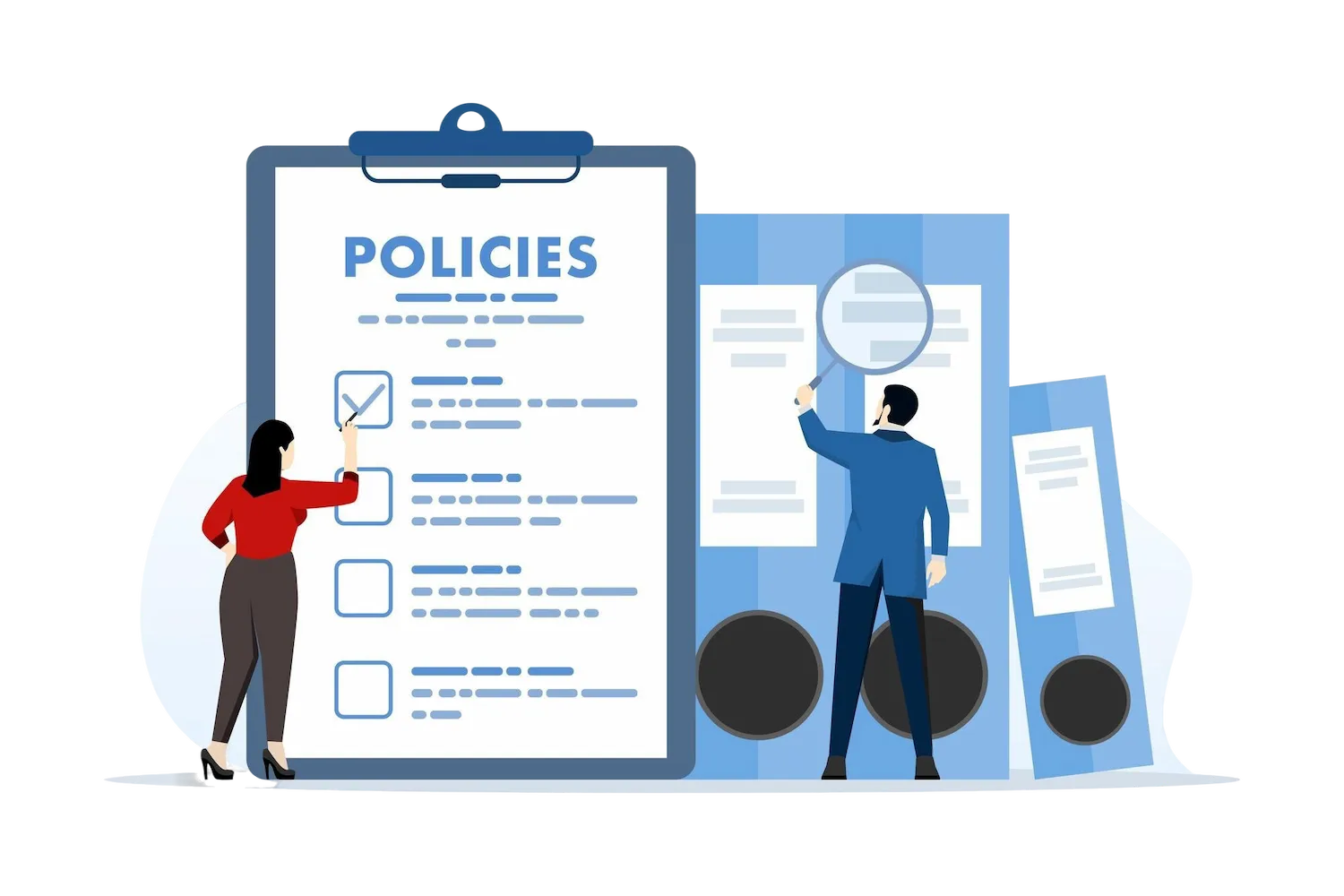Getting a Canadian Study Permit is now tougher than before. With new provincial limits, stricter course rules, and fewer permits available in 2025, even one small mistake could cost you your chance this year. In this blog, we’ll explain the latest IRCC updates, who is eligible, and share easy, practical tips so you can apply with confidence.
Eligibility Criteria for a Canada Study Permit (As per IRCC’s official rules)

To get a Canadian Study Permit Application, you need to meet these main requirements:
1. Have an offer from a Designated Learning Institution (DLI)
You must have a valid Letter of Acceptance from a college or university in Canada that’s officially approved to host international students.
2. Show you have enough money
You need to prove you can pay for:
- Your tuition fees
- Your living costs (at least CAD 20,635 per year for one student, not including tuition)
- Return travel costs for yourself and any family members coming with you
3. No criminal record
You may need to give a police certificate to prove you have no criminal history.
4. Be in good health
You might need a medical test to show you’re healthy.
5. Plan to leave Canada after your studies
You must show the visa officer that you’ll return home when your study permit ends, even if you later plan to apply for a work permit or PR.
6. Provincial or Territorial Attestation Letter (PAL/TAL)
From January 2024, most students must have a PAL or TAL to confirm they have a spot under that province’s or territory’s study permit quota.
7. Extra rules for minors
If you’re under 18 or 19 (depending on the province), you may need a legal custodian in Canada.
Rules You Must Follow While Studying in Canada
If you have a Canada Study Permit, you need to follow certain rules to keep your legal status:
1. Stay enrolled at a Designated Learning Institution (DLI)
You must be registered at an approved college or university (DLI) during your entire course.
2. Keep making progress in your studies
You’re expected to attend classes, complete assignments, and meet your academic requirements.
3. Limit your study breaks
You can take a break for up to 150 days only, and it must be an approved leave or a transfer to another DLI.
4. Follow the conditions on your study permit
Your permit may have rules about:
- How many hours you can work (on-campus/off-campus)
- Where you can study
- The type of program you can take
5. Inform IRCC if you change your college or program
If you switch to another DLI or change your type of course, you may need to apply for a new study permit.
6. Stop studying if you no longer qualify
If you drop out, don’t enroll, or fail to meet permit rules, you must stop studying and either change your status or leave Canada.
7. Follow work rules if you’re allowed to work
If you’re eligible, you can work on-campus or off-campus, but you must follow the current limit of 24 hours/week during classes.
Documents You Need for a Canada Study Permit

When you apply for a study permit, make sure you have these documents ready (Canada Study Permit Guide):
1. Letter of Acceptance
From a Designated Learning Institution (DLI) that is approved to host international students.
2. Provincial or Territorial Attestation Letter (PAL/TAL) (Required from January 22, 2024)
Confirms your spot under your province’s or territory’s study permit quota.
- Some students are exempt, like K-12 students and certain graduate-level applicants.
- From September 18, 2024, even master’s and PhD students need a PAL/TAL.
3. Proof of Enough Funds
Show you can pay for:
- Tuition fees
- Living expenses (at least CAD 20,635/year for one student, not including tuition)
- Return travel for you and any family members
This can be bank statements, scholarship letters, GICs, or other proof.
4. Valid Passport or Travel Document
Must cover your entire planned stay in Canada.
5. Proof of Identity
Usually your passport, plus recent passport-size photos that meet IRCC rules.
6. Biometrics
Fingerprints and a photo, if required for your country.
7. Police Certificate (if asked)
To show you have no criminal record.
8. Medical Exam (if asked)
Done by a doctor approved by IRCC.
9. Explanation Letter / Statement of Purpose
Tell why you want to study in Canada and show you understand your student responsibilities.
10. Extra Documents for Minors (if applicable)
If you’re under the legal adult age in your study province, you may need a custodian declaration.
Key Changes in Canada Study Permit Rules (2024-2025)
These are based on Canada Study Permit Updates and Canada Study Permit News from official sources:
Study Permit Cap & Provincial Attestation
1. Fewer study permits available
In 2024, Canada put a limit on new study permits to reduce pressure on housing, healthcare, and public services. In 2025, this limit has been cut by another 10%, bringing the total to 437,000 permits (Canada New Study Permit Rules).
2. PAL/TAL now needed for most students
To control the cap, most applicants must submit a Provincial or Territorial Attestation Letter (PAL/TAL) confirming they have a spot under their province’s quota. This now includes master’s and PhD students too (New Canada Study Visa Rules).
3. Limit on applications processed
In 2025, IRCC will only process 550,162 study permit applications. Any applications sent after the cap is reached will be returned with a refund.
Post-Graduation Work Permit (PGWP) Changes
1. Language test now mandatory (from November 1, 2024)
All PGWP applicants must take an approved English/French test:
- CLB 7 (NCLC 7) for university graduates (bachelor’s, master’s, PhD)
- CLB 5 (NCLC 5) for college or vocational graduates
Test results must be less than 2 years old (PGWP Canada Update).
2. Field of study rules
If you applied for your study permit on or after November 1, 2024, certain programs (especially non-degree ones) must meet field-of-study requirements to qualify for PGWP. University degree holders are exempt from this extra filter.
3. Longer PGWP for master’s students
Since February 15, 2024, master’s graduates and even from shorter programs (minimum 8 months or 900 hours in Quebec) can get a full 3-year PGWP.
4. Eligible DLI required
To get a PGWP, you must graduate from a DLI that is on the PGWP-eligible list and meet all eligibility rules. Students who applied before November 1, 2024, don’t need to meet the new language or field-of-study rules.
Other Important Updates
1. 178 programs reinstated for PGWP
In July 2025, 178 programs that were temporarily removed from PGWP eligibility were added back. This applies retroactively for eligible students (Canada Study Permit Rules Changes).
2. Impact on Indian students
In the first quarter of 2024, there was a 31% drop in study permits issued to Indian students compared to 2023, showing how much the new rules have affected this group (Canada Study Visa Rules Changes).
Quick Summary of Changes
|
Category |
Key Updates (2024-2025) |
|
Study Permit Cap |
Reduced by 10% to 437,000 permits |
|
Application Cap |
Only 550,162 processed in 2025; extra returned |
|
PAL/TAL |
Required for most students, now includes graduate students |
|
PGWP Language Test |
CLB 7 for university, CLB 5 for college |
|
Field-of-Study Rules |
Apply if permit request is on/after Nov 1, 2024 |
|
Master’s PGWP |
3-year PGWP even for short programs |
|
Eligible Programs Reinstated |
178 programs back on PGWP list |
|
Indian Student Impact |
31% fewer permits issued in Q1 2024 |
Step-by-Step Guide to Apply for a Canada Study Permit (2024-2025)

Follow this Canada Study Permit Latest News process:
Step 1 - Pick the Right School (DLI)
Choose a college or university that’s on Canada’s Designated Learning Institution (DLI) list. If you want to work after graduation, make sure it’s PGWP-eligible.
Step 2 - Get Your Letter of Acceptance
Apply to your chosen school and get an official Letter of Acceptance. It must include your full name, course details, and start/end dates.
Step 3 - Apply for a PAL/TAL
Request a Provincial or Territorial Attestation Letter from the province or territory where you’ll study. This confirms your spot under their study permit quota.
- Required for most students from Jan 22, 2024
- Required for master’s and PhD students from Sept 18, 2024
Step 4 - Gather Your Documents
You’ll need:
- Letter of Acceptance
- PAL/TAL
- Proof of funds (at least CAD 20,635/year for living expenses + tuition + travel)
- Valid passport
- Biometrics (if needed)
- Police certificate & medical exam (if needed)
- Statement of Purpose (optional but helps your case)
Step 5 - Apply Online
Create an account on the IRCC website and fill out the study permit form. Pay your application fee (CAD 150) and biometrics fee (CAD 85, if applicable).
Step 6 - Give Biometrics & Extra Info
Go to your biometrics appointment at an approved center. Send any extra documents quickly if IRCC asks for them.
Step 7 - Wait for the Result
Processing times vary by country. Check IRCC’s website for updates. If approved, you’ll get a Port of Entry (POE) Letter of Introduction and, if needed, a TRV or eTA.
Step 8 - Fly to Canada
Bring your approval letter, passport, Letter of Acceptance, PAL/TAL, proof of funds, and any other important documents. When you land, a border officer will give you your study permit.
Tips to Get Your Canada Study Permit Approved Under the New Rules
With fewer study permits, PAL/TAL requirements, and stricter PGWP rules, you need to plan smart. These tips can help boost your chances:
1. Apply Early
The permit quota is set for the whole year and can fill up fast. As soon as you get your Letter of Acceptance and PAL/TAL, apply without delay.
2. Pick the Right School and Program
Make sure your college/university is on the official PGWP-eligible list. Avoid private college programs that no longer qualify for PGWP.
3. Show Enough Money
You must prove you can cover:
- CAD 20,635/year for living costs (not including tuition)
- Tuition fees
- Return travel costs
Use bank statements, GICs, or scholarship letters as proof.
4. Prepare for the New PGWP Language Test
If you want a PGWP later, aim for:
- CLB 7 for university graduates
- CLB 5 for college graduates
Take the test early so your results are still valid when you apply.
5. Keep All Documents Correct and Updated
Check that your name, details, and dates match across all forms, IDs, and letters. Small errors can cause delays or even refusals.
6. Stay in Touch with Your School
Your school must confirm your enrollment with IRCC. Make sure you respond to their emails and complete any required steps on time.
7. Follow the Rules After You Arrive
Stay enrolled full-time, don’t take more than 150 days of leave, and follow work hour limits (24 hours/week while studying). Breaking rules can lead to your permit being cancelled.
8. Get Expert Help if Needed
If your case is complicated, like a past refusal or program change, consider hiring a licensed immigration consultant (RCIC) or lawyer.
Quick Summary of Canada Study Permit Changes (2024-2025)
|
Category |
What’s New |
|
Study Permit Cap |
Canada has a yearly limit on study permits since 2024. In 2025, the cap is 437,000 permits—about 10% fewer than last year. This applies to new approvals only. |
|
Application Limit |
Only 550,162 applications will be processed in 2025. If the cap is reached, extra applications will be returned with a refund. |
|
PAL/TAL Requirement |
Most students need a Provincial or Territorial Attestation Letter from Jan 22, 2024. Master’s and PhD students also need it from Sept 18, 2024. |
|
Financial Proof |
You must show you have enough money for CAD 20,635/year for living costs, plus tuition and return travel. |
|
PGWP Language Test |
From Nov 1, 2024: CLB 7 for university grads, CLB 5 for college grads. Test results must be less than 2 years old. |
|
Field-of-Study Rules |
If you applied for your study permit on or after Nov 1, 2024, some non-degree programs may not qualify for PGWP. University degree holders are exempt. |
|
Master’s PGWP |
From Feb 15, 2024, master’s grads get a 3-year PGWP, even for short programs (at least 8 months). |
|
PGWP-Eligible Programs |
178 programs removed earlier in July 2025 are now back on the PGWP-eligible list. |
|
Work Hour Limit |
From Nov 15, 2024, you can work off-campus only 24 hours/week during study sessions. |
|
SOWP (Spousal Work Permits) |
Now limited to spouses of master’s or PhD students, with a few exceptions for certain undergrad programs. |
|
Impact on Indian Students |
In early 2024, there was a 31% drop in permits for Indian students due to stricter rules. |
Conclusion
With reduced permit numbers, the Canadian Government's New Rules for International Students, and stricter compliance checks, studying in Canada in 2025 requires planning, precision, and preparation. Get started now to secure your spot.







